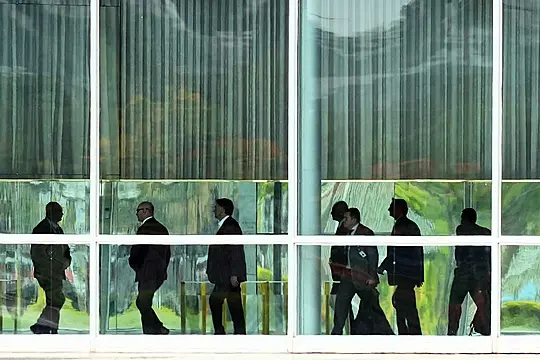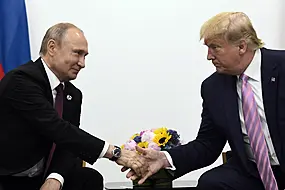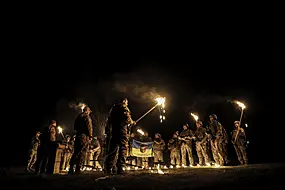A full day after Brazil’s President Jair Bolsonaro lost his bid for re-election, the right-wing leader had neither conceded defeat nor challenged the results of the country’s closest political contest in more than three decades.
Mr Bolsonaro had not spoken a word to reporters camped outside the official residence or the supporters who regularly gather nearby. Nor did he post on his otherwise prolific social media platforms.
The only sign of protest came from Bolsonaro-supporting truckers who on Sunday started blocking roads across the country. By Monday night, the Federal Highway Police reported 236 incidents in 18 states, up from 136 three hours prior to that.

Mr Bolsonaro’s rival, former president and left-leaning ex-union leader Luiz Inacio Lula da Silva won the runoff on Sunday night with 50.9% of the votes, to Mr Bolsonaro’s 49.1%. It was the closest election since Brazil’s return to democracy in 1985.
Ricardo Barros, Mr Bolsonaro’s whip in the country’s Lower House, told The Associated Press by phone that he was with the president on Monday and that Mr Bolsonaro was “still deciding” whether to speak about the election’s results.
Much like former US president Donald Trump, whom Mr Bolsonaro admires, the outgoing Brazilian leader has repeatedly questioned the reliability of the nation’s electronic voting system. At one point he said he possessed proof of fraud, though he provided no evidence. And as recently as last month, he remarked that if he did not win in the election’s first round, something was “abnormal” — even as most polls showed him trailing.
As time passes and an increasing number of international leaders publicly recognise Mr da Silva’s victory, the president’s room for dispute is dwindling, experts told The Associated Press.

Some of Mr Bolsonaro’s closest allies indicated the same.
“The will of the majority seen on ballots shall never be contested,” Lower House speaker Arthur Lira told reporters on Sunday.
Other supporters of Mr Bolsonaro who publicly acknowledged Mr da Silva’s win include Sao Paulo governor-elect Tarcisio de Freitas and senator-elect Damares Alves, both of whom served as ministers under Mr Bolsonaro, and Lower House whip Mr Barros. Evangelical pastor Silas Malafaia, who has been a strident Bolsonaro supporter, called for God to bestow his “blessing” on Mr da Silva.
Abroad, US President Joe Biden was among the first world leaders to salute Mr da Silva, highlighting the country’s “free, fair, and credible elections”. By contrast, Mr Bolsonaro took more than a month to congratulate Mr Biden’s 2020 victory against Mr Trump.
Like Mr Trump, Mr Bolsonaro has his own potential legal concerns. He is one of the targets of a Supreme Court inquiry into the spread of fake news and a Senate investigation recommended that he be charged with crimes for his mishandling of the Covid-19 pandemic.







